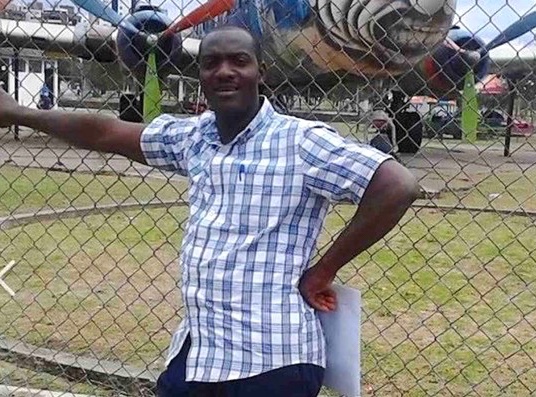
Sat 2/9 @ 11AM-4PM
Chrissy Stonebraker-Martínez, co-director of the Interreligious Task Force on Central America, sat down with CoolCleveland to talk about the upcoming annual Social Justice Teach-In: Speaking Truth to Power on Sat 2/9 from 11AM-4PM. Hosted by Case Western Reserve University, this teach-in attracts hundreds of people from the Greater Cleveland area and beyond annually.
CoolCleveland: First, can you just tell me a little about IRTF? What do you guys do?
Chrissy Stonebraker-Martínez: We are a human rights organization, founded in 1981 when two women, Jean Donovan and Dorothy Kazel, both from Cleveland, were murdered in El Salvador. Ever since then we’ve been working on human rights cases in Central America alongside our partners to make advocacy and educational campaigns around human rights abuses. Those abuses usually originate from corporate or government involvement. That’s really the center of our work.
We also try to educate about 5,000 people every year in the Greater Cleveland area, and over 40 different educational institutions every year.
CC: This is the 19th year of the Social Justice Teach-In. What should attendees expect, and is there anything new this year that you’re excited about?
CSM: Wow, it is already the 19th. That’s crazy. I am really excited about our keynote speaker Anthony Grimes — he works for the Truth Telling Project and the Korbel International School in Denver. He is an amazing individual and really works with the intersections of race, faith and art to come more fully towards equity for all people. In particular he and the Truth Telling Project have been working on a reparations campaign to educate the greater public about needs for reparations, and the history of reparations. He’s just amazing.
I am also really excited because we have more workshops than ever before, over 40 workshops, a wide variety and a bunch of amazing experts and average people who are leading different aspects of the social justice movement. The large majority of our workshop participants are people who live, work and play in Cleveland, but more than a handful of folks are coming from out of town from New York, Denver — all over the place. We are looking at greater connections to movement beyond just out backyard.
CC: I know you will be running around that day, but are you going to be able to sit in on a workshop?
CSM: I hope so. I’ll get to hear the keynote, so at least there’s that.
CC: Is there any workshop you’re particularly excited for, even if it’s just for other people?
CSM: Oh gosh, it is so hard to choose, there are so many good ones. I have a friend coming from the Muslim Peace Fellowship who is going to come to talk about the Ambazonian conflict connected to the Cameroonian government, and that is certainly going to be really fascinating. I’m really excited about the workshops we have around decolonizing music and art. One of them is by my good friend Mori, who is just really, really awesome. That workshop will be lovely.
And another by the associate dean at the Oberlin Conservatory Chris Jenkins. Those are workshops I’m really interested in.
I am really also excited about the workshops we have on immigrant rights. We have this brilliant man coming. His name is Ansly Damus, and he has just been released from immigration detention. He’s an economist in Haiti and was targeted for his work in academia. He’s now been placed with a family sponsor who was fighting for over two years to have him safely residing in their home on the East Side of Cleveland. He will be talking about his work and his life, and his sponsors will be talking about their experiences trying to release him from immigration detention.
CC: Truth-telling is this year’s theme. Why is storytelling such an important part of social justice?
CSM: We were founded when these two women from Cleveland were killed in El Salvador. Our organization, and many other organizations, were asking for an independent truth commission. What we knew, and what we determined was the truth 20 years later through that commission, was that the U.S. trained and funded the people who were charged with the women’s deaths. There is a powerful history of truth commissions around the world that, unfortunately, take a long time to really find justice in instances of injustice.
But we think that if we are telling truths all the time, in our daily lives, in our daily actions, and to power — those institutions and systems like the government — if we are speaking truths in those places, then we can really build a deeper trust among our network and communities.
I think also that it is just inspiring to be so aware of yourself, and the internal transformations we go through in our lives, understanding what it is to be human. Everyone is dealing with some sort of struggle, and if we are able to do that internal work and see how it relates to the struggles around us, then we will really have a more bonded society.
CC: It is so great that it ties so closely to your past and your founding. Thank you so much, Chrissy, I’m super excited for the event.
See full workshop list and buy your tickets here. This event is free for students. It’s $10 in advance, $15 at the door for others.
social-justice-teach-in-speaking-truth-to-power

Jenna Thomas is a sophomore at Cleveland State University studying nonprofit administration and Spanish. She is particularly interested in refugee and immigrant services and criminal justice reform, and is a tutor at Building Hope in the City’s Hope Center. In addition, Jenna is the founder and president of CSU’s university chapter of Free the Slaves working to make CSU a certified Fair Trade University.
Cleveland, OH 44106